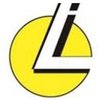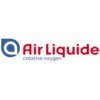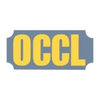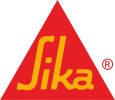Filter interviews by
Vishnu Chemicals Chemical Plant Operator Interview Questions and Answers
Vishnu Chemicals Chemical Plant Operator Interview Experiences
1 interview found
I applied via Walk-in and was interviewed before Sep 2021. There were 3 interview rounds.

Test the knowledge and company based questions and theory of my study subjects topic wise
Basic knowledge and what about company details they ask my subject core also
Interview Preparation Tips
Top trending discussions






Interview questions from similar companies

Chemical Plant Operator Interview Questions & Answers
Anupam Rasayan Indiaposted on 18 Sep 2023
I applied via Job Fair and was interviewed in Aug 2023. There were 3 interview rounds.

(1 Question)
- Q1. Pump wark and valve operatar, Het exchange and beczik mahiti
My name is nakum Rohit
Me apprentice ni TATA CHEMICAL and
AOCP chemical plants operatar is beczik mahiti
Interview Preparation Tips

I appeared for an interview in Jul 2022.

(1 Question)
- Q1. Related to piping , project, maintenance
(1 Question)
- Q1. Current organization, job profile etc
Interview Preparation Tips

(2 Questions)
- Q1. Nothing special only salary discussion.
- Q2. For Freshers third party , and discuss for accommodation .
Interview Preparation Tips

I appeared for an interview in Jul 2023, where I was asked the following questions.
- Q1. Can you relocate?
- Ans.
Yes, I am open to relocating for the right opportunity and to further my career growth.
I have previously relocated for a job, which helped me gain valuable experience.
I understand the importance of being flexible in today's job market.
Relocating can provide new challenges and opportunities for professional development.
I am willing to explore different locations that align with my career goals.
- Q2. Have any relevant experience ?
- Ans.
I have over 8 years of experience in software engineering, specializing in system architecture and project management.
Led a team of 5 engineers in developing a scalable microservices architecture for a financial application.
Implemented CI/CD pipelines that reduced deployment time by 40%.
Worked on a cross-functional team to enhance user experience, resulting in a 30% increase in user satisfaction.
Developed a machine lea...

I appeared for an interview in Oct 2024, where I was asked the following questions.
- Q1. Information about solvents
- Q2. Safety protocols

Production Supervisor Interview Questions & Answers
Meghmani Organicsposted on 30 Aug 2021
I applied via Company Website and was interviewed in Jul 2021. There was 1 interview round.
Interview Questionnaire
3 Questions
- Q1. Process relative
- Q2. Chemical questions
- Q3. Safety handling
Interview Preparation Tips

I applied via Referral and was interviewed in Feb 2023. There were 3 interview rounds.

(1 Question)
- Q1. What is a Distillation... What is a filterations & drying
- Ans.
Distillation is a process of separating components of a mixture based on their boiling points. Filtration is a process of separating solids from liquids or gases. Drying is a process of removing moisture from a substance.
Distillation involves heating a mixture to vaporize the component with the lowest boiling point, then condensing the vapor to collect the purified component.
Filtration involves passing a mixture throug...
(1 Question)
- Q1. What is a family job
Interview Preparation Tips
Good place for job

Production Supervisor Interview Questions & Answers
Meghmani Organicsposted on 15 Apr 2023
I applied via Approached by Company and was interviewed before Apr 2022. There were 2 interview rounds.

(7 Questions)
- Q1. How many types of valves.?
- Ans.
There are various types of valves used in different industries for controlling the flow of fluids or gases.
Gate valve
Ball valve
Butterfly valve
Check valve
Globe valve
Diaphragm valve
Plug valve
Needle valve
Pressure relief valve
Safety valve
- Q2. What is the Pressure units.?
- Ans.
Pressure units are used to measure the force exerted on a surface per unit area.
Pressure is typically measured in units such as pascal (Pa), bar, psi, or atmosphere (atm).
1 pascal (Pa) is equal to 1 newton per square meter (N/m²).
1 bar is approximately equal to atmospheric pressure at sea level (1 atm).
1 psi (pound per square inch) is equal to approximately 6895 pascals (Pa).
- Q3. What is the fire trangle.? And diamonds.?
- Ans.
The fire triangle is a model that explains the three elements required for a fire to start and continue. Diamonds are a form of carbon that is highly valued for their beauty and durability.
The fire triangle consists of three elements: fuel, heat, and oxygen.
If any of these elements are removed, the fire will be extinguished.
Diamonds are formed deep within the Earth's mantle and are brought to the surface through volcan...
- Q4. Fire trangle 1)Oxygen 2)heat 3)fuel Diamonds 1)red 2)yellow 3)white 4)blue
- Q5. What is the Bernoulli equation.?
- Ans.
The Bernoulli equation relates the pressure, velocity, and elevation of a fluid in a streamline.
The Bernoulli equation is a fundamental equation in fluid dynamics.
It states that the total energy of a fluid remains constant along a streamline.
The equation relates the pressure, velocity, and elevation of the fluid.
It is derived from the principle of conservation of energy.
The equation is commonly used in various applicat...
- Q6. How many type unit operation & unit process
- Ans.
There are numerous types of unit operations and unit processes in production.
Unit operations involve physical changes to materials, such as mixing, filtration, and distillation.
Unit processes involve chemical changes, such as oxidation, reduction, and hydrolysis.
Examples of unit operations include crushing, grinding, and drying.
Examples of unit processes include fermentation, polymerization, and chlorination.
- Q7. Unit operation 1)Distillation 2)filtration 3)drying 4)extraction 5)crystallisation Unit process 1)oxidation 2)reduction 3)Alkylation 4)chlorination
Interview Preparation Tips
- Time Study
- Physical Education

(2 Questions)
- Q1. What is your Raw material in bifenthrin?
- Ans.
The raw material in bifenthrin is a synthetic pyrethroid insecticide.
Bifenthrin is synthesized from various chemical compounds.
It is commonly derived from the reaction between 2-methyl-3-bromobenzyl cyanide and 2,2-dimethyl-1,3-dioxane-4,6-dione.
Other raw materials used in the production of bifenthrin include solvents, catalysts, and reagents.
The synthesis process involves multiple steps, including purification and for...
- Q2. What is your raw material in bifenthrin?
- Ans.
The raw material in bifenthrin is a synthetic pyrethroid insecticide.
Bifenthrin is synthesized from various chemical compounds.
It is commonly derived from the reaction of 2-methyl-3-phenylpropyl bromide with 2,2-dimethyl-3-(2-methylprop-1-enyl)cyclopropanecarboxylic acid.
Other raw materials used in the production of bifenthrin include solvents, catalysts, and reagents.
The synthesis process involves multiple steps and r...
Vishnu Chemicals Interview FAQs
Tell us how to improve this page.
Vishnu Chemicals Interviews By Designations
- Vishnu Chemicals Senior Engineer Interview Questions
- Vishnu Chemicals Graduate Engineer Trainee (Get) Interview Questions
- Vishnu Chemicals Accountant Interview Questions
- Vishnu Chemicals Assistant Manager Interview Questions
- Vishnu Chemicals Graduate Apprentice Trainee Interview Questions
- Vishnu Chemicals Process Engineer Interview Questions
- Vishnu Chemicals Assistant General Manager Interview Questions
- Vishnu Chemicals Junior Engineer Electrical Interview Questions
- Show more
Interview Questions for Popular Designations
- Electrical Engineer Interview Questions
- Service Engineer Interview Questions
- Assistant Engineer Interview Questions
- Production Supervisor Interview Questions
- Operator Interview Questions
- Electrical Supervisor Interview Questions
- Mechanical Technician Interview Questions
- Machine Operator Interview Questions
- Show more
Interview Questions from Similar Companies
Vishnu Chemicals Chemical Plant Operator Reviews and Ratings
based on 1 review
Rating in categories
|
Junior Engineer
69
salaries
| ₹2 L/yr - ₹3.5 L/yr |
|
Assistant Manager
30
salaries
| ₹4.7 L/yr - ₹10.2 L/yr |
|
Mechanical Engineer
20
salaries
| ₹3 L/yr - ₹5.4 L/yr |
|
Senior Manager
18
salaries
| ₹10.5 L/yr - ₹18.8 L/yr |
|
Shift Incharge
17
salaries
| ₹3.6 L/yr - ₹7 L/yr |

Sheenlac Paints

Deepak Fertilisers and Petrochemicals

Laxmi Organic Industries

Meghmani Organics
- Home >
- Interviews >
- Vishnu Chemicals Interview Questions











